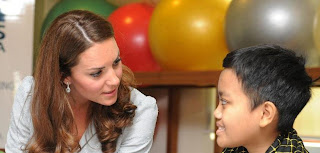It’s been a shaky start for the new NHS
phone line designed to replace NHS Direct. For a start not all of the forty
plus services are up and running and already some have been suspended. There’s
been criticism about long waiting times and poor advice and at least one media
headline about a patient dying.
NHS England’s Chief Nursing officer, Jane
Cummings, says improvements are being made but when asked by BBC Radio Four’s
Today programme how callers could give their feedback the answer was
revealingly confusing. It involved going to the website and looking for
whichever GP consortium had commissioned the service where you live. Welcome to
the world of multiple providers in the NHS. Nothing wrong with that except when
nobody is clear about who’s doing what for who and when and, most importantly,
who’s actually accountable for what’s going right or wrong. The figure that 100
thousand people used the service over the bank holiday weekend shows that there
is a need for an advice line for non 999 cases which means the spotlight will
continue to shine on the fledgling steps of 111. Whether clarity,
accountability and improvement follow is another matter.
Regardless of who’s commissioned what and
from whom what the caller really wants is fast and accurate advice. The other
revealing bit of the information given so far is the answer about those people
taking the calls. I am imagining that my call is being answered by nurses,
paramedics, maybe even doctors and I could be right but the call answerers are
described as advisors “with access to” nurses, etc. The “advisor” is reading
from prompts on the screen and using algorithms to assess the information
given. Both of these are useful tools in asking the right questions and assimilating
the answers but the quality of the service depends almost entirely on the
quality of those not just asking the questions but listening to the answers.
Like all good communication it’s the listening that matters most and the
ability of a specialist to pick up on something that could be key and get as
much information from the caller as possible but also able to pick up on other
things, sometimes unsaid. I hope there are enough of those kinds of specialist
on the other end of the phone line.
Being apprehensive about new stuff and
distrusting technology is human nature but ultimately the ability of this
service to help people and save lives is not just about working effectively in
a new way or about getting the computer technology right or about having the
right people with the right skills at the end of the phone it’s about doing all
three and so far the signs are not good.
Guest Blogger
Lynne Wilson







